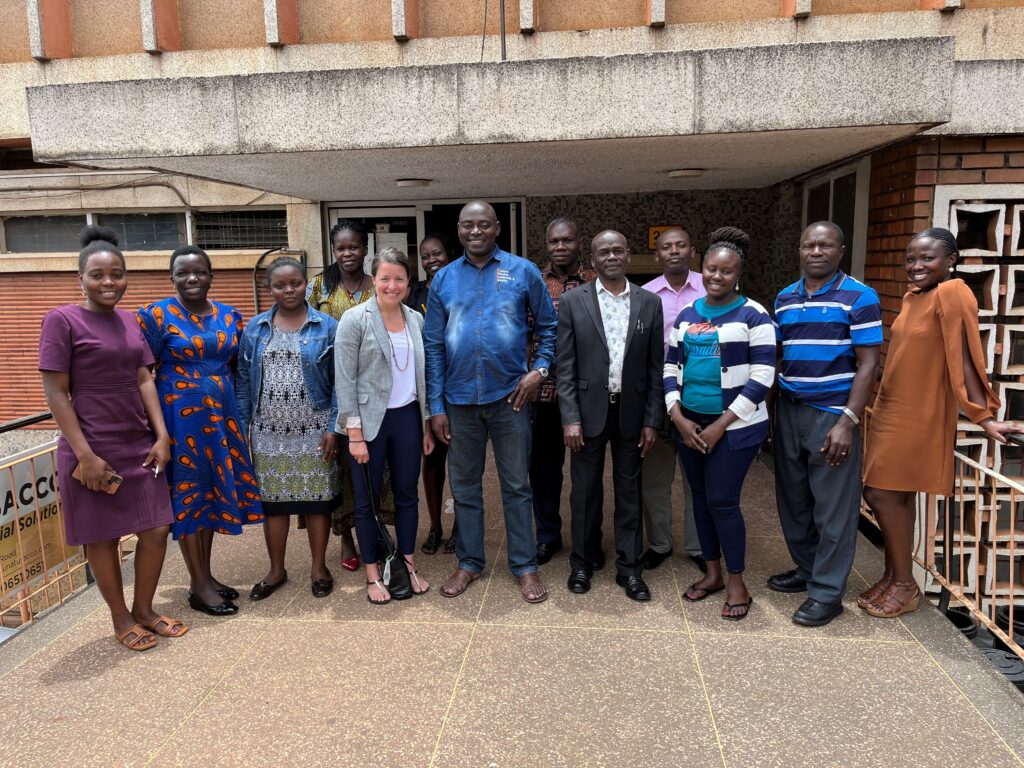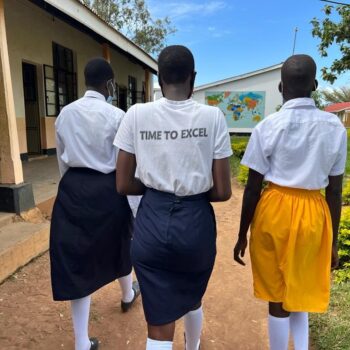Educate a Girl, Educate a Nation
International Development Week (IDW) aims to draw attention to international development and shine a spotlight on the important contributions that Canadians are making through partnerships around the world. IDW 2023 highlights Canadian contributions in key sectors, including education and gender equality. This IDW takes place from February 5 to 11, 2023.
“No one will have power over me. I will have power over myself…Through education I can overcome all that and achieve my goal of becoming medical doctor.”
For 16-year-old Jessica*, living in Uganda’s Serere, in the country’s eastern Teso region, education is the gateway to the life she wants. Until recently, that opportunity was out of reach because of one simple but challenging fact: she is a girl.
Most girls in Uganda face countless barriers to pursuing an education, a career, and self-empowerment. Too often, girls are destined to stay home, take care of the family, and raise one of their own. Slowly, through collective action, in recent years, this was beginning to change. However, the COVID-19 pandemic brought that progress to a sudden halt in the spring of 2020. Only now, nearly three years later, the work towards gender equity is finally beginning again.
Pandemic struggle
In Uganda, pandemic measures put education on hold, leaving over 15 million Ugandan students out of school. In fact, Uganda set the world record for the longest school closures, lasting nearly two years.
A lack of Internet connectivity meant that online learning was not an option, leaving teachers and students to depend on radio to deliver and receive lessons. But even when a radio was available, most students were unable to tune in to class. Many had to support their families financially by getting jobs, while others were counted on to care for siblings at home.
For some girls and young women, school closures led to life-changing events that education was helping to prevent, as was the case with Patricia*, who became pregnant during the pandemic. As a new mother, the 18-year-old from Ngora district, also in the eastern Teso region, believed a return to school was impossible. But her outlook and reality changed because of the Simameni project.
Simameni: Stand Up
The Simameni project, launched in early 2020, aims to not only show the benefits and advantages of secondary school education for girls in Uganda, but to also improve the conditions in schools to make them safer, welcoming, and gender-inclusive.
Simameni, which means ‘Stand up’ in Swahili, is active in 24 schools in Uganda’s Western and Teso regions. Supported by Global Affairs Canada, the Canadian Teachers’ Federation (CTF/FCE) has been collaborating with long-time partner, the Uganda National Teachers’ Union (UNATU) to make the Simameni project a key driver for change within the communities, and that begins with attitudes towards girls in school.

Although the 5-year project was launched nearly three years ago, due to pandemic restrictions, it wasn’t until September 2022 that CTF/FCE program officer Sandy Plamondon, was able to return to Uganda. With colleagues from UNATU, Sandy visited half of the Simameni schools to monitor and evaluate the progress of the project. Together, they worked to restart the project by planning and delivering activities and teacher trainings on preventing gender-based violence in schools and strategies for gender-sensitive classrooms and schools.
The school visits affirmed that, even with the challenges posed by the pandemic, progress has been made. “The school visits allowed the Simameni team to witness the students and staff’s pride in sharing their school’s improvements,” recounted Sandy. “To hear their stories of change, and to see with our own eyes the remaining challenges, it was truly humbling.”
Throughout the schools, the improvements are as welcomed as they are varied.
“Our school’s infrastructure has improved because of training offered by Simameni,” explained teacher Lydia Nakirya. Her Secondary School in the Western region now has better access to water, improved hygiene, and overall enhanced facilities.
Elsewhere, strategies have been developed to change school culture.
In the Teso region, teachers at one high school have implemented a gender equity strategy to improve the safety and well-being of students, both in and out of school. Some of the initiatives include the creation of leadership opportunities for girls and an increase of female staff to foster gender balance.
“Simameni is sending ripples of positive change throughout our communities. Although there is still work to be done, we are looking forward to seeing even more progress,” said Filbert Baguma, General Secretary of UNATU.
Jumping Hurdles to Overcome Barriers
Even with Simameni moving ahead, students and staff say they continue to face barriers. Easy access to water remains a challenge and a security concern as many students are forced to walk long distances alone to and from community wells. Due to the high poverty rates in the Teso and Western regions, many girls must stay at home to support family. At times, some girls engage in dangerous relationships with older men in exchange for food. Even while in school, where girls should be safe, gender-based violence persists. And, as seen during the school closures, teenage pregnancies and early marriages have increased.
To meet these challenges head on, some schools are providing boarding facilities to save students from long commutes. Other schools have developed alternative ways of raising funds to pay for school fees, boarding facilities, and lunches. Some schools have begun sharing the knowledge gained during menstrual hygiene management workshops with students and even to the nearby primary schools. Others have prioritized access to water over any other need, by installing a pump on school grounds to improve hygiene in the school’s bathrooms, washrooms, and dormitories.
“Although we still struggle, and despite how modest some of the progress is, it is still progress that empowers our community”, shared a head teacher.
With the Simameni project slated to continue until the end of 2025, there remains time to continue the progress, one girl at a time.
For more information and updates, please contact Sandy Plamondon.
*names changed to protect privacy.
The Canadian Teachers’ Federation
Founded in 1920, the CTF/FCE is a national alliance of provincial and territorial teachers’ organizations that represent over 365,000 teachers and education workers across Canada. The CTF/FCE is also an affiliate of Education International, which represents more than 32-million educators.
Media contact
Andrew King,
Canadian Teachers’ Federation (CTF/FCE)
Contact
Mobile: 819-213-7847


